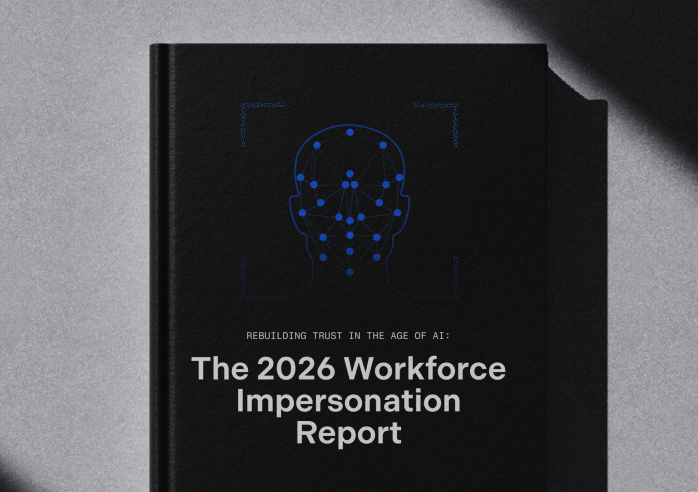According to a new warning by Palo Alto Networks and Mandiant, and the FBI, the fast-moving threat cluster known as Scattered Spider has shifted its focus to the aviation, airline and transportation industries. The Scattered Spider playbook isn’t novel, but it’s dangerously effective: Impersonate insiders using social engineering, deepfakes, and real employee data to fool a helpdesk agent into granting resetting a victim’s account credentials. In a sector where real-time operations are non-negotiable, and literal lives are on the line, the implications couldn’t be more dire.
"Unit 42 has observed Muddled Libra (also known as Scattered Spider) targeting the aviation industry. Organizations should be on high alert for sophisticated and targeted social engineering attacks and suspicious MFA reset requests." - Sam Rubin, SVP of Consulting & Threat Intelligence at Unit 42
Scattered Spider has already made headlines for successful ransomware attacks on retailers, casinos, and insurance firms. Now, security and IT teams across the aviation sector—from airlines and airports to MRO (maintenance, repair, and overhaul) vendors and travel platforms—must prepare for the group’s signature helpdesk social engineering attacks.
Here’s what aviation cybersecurity teams need to know about this new threat, and how to harden identity controls at the helpdesk before attackers penetrate critical operations.
How Scattered Spider Socially Engineers a Support Desk
It’s 4:13 AM. An IT helpdesk agent at an aviation company receives a call from someone claiming to be a regional operations manager. He’s urgent, polite, and sounds exactly like the person he says he is. His mobile credential isn’t working. He just needs an MFA reset so he can access the crew scheduling system. Flights are going to get delayed if he can’t get in.
The agent complies and resets the employee’s MFA. But they’ve just given an attacker backdoor access to internal airline systems, crew scheduling tools, and operations platforms. Within hours, data has been exfiltrated, malicious code is propagating, and the company is facing a full-blown ransomware event.
This is a fictional account, but it’s exactly the kind of scenario now keeping aviation cybersecurity teams up at night. Scattered Spider’s use of generative AI and deepfakes takes this threat to another level. A helpdesk agent might hear the correct voice or even see a live video of a familiar face and still be interacting with a threat actor. Traditional verification methods like callback numbers, security questions, or visual cues are no longer reliable.
"ALERT—The FBI has recently observed the cybercriminal group Scattered Spider expanding its targeting to include the airline sector. These actors rely on social engineering techniques, often impersonating employees or contractors to deceive IT help desks into granting access. These techniques frequently involve methods to bypass multi-factor authentication (MFA), such as convincing help desk services to add unauthorized MFA devices to compromised accounts." - Federal Bureau of Investigation
Security teams from Unit 42 and Mandiant have reported increased usage of AI-generated voice and video to impersonate legitimate employees in real time. When your helpdesk agent sees a familiar face or hears a trusted voice asking for an MFA reset, can you really blame them for being fooled?
Defending Against Scattered Spider in the Aviation Sector
Defending the aviation industry against deepfake-enhanced social engineering requires a mindset shift. This isn’t a matter of enforcing better passwords or using better security questions. It’s about building real identity assurance into every identity system.
Mandiant is aware of multiple incidents in the airline and transportation sector which resemble the operations of UNC3944 or Scattered Spider." - Charles Carmakal, CTO at Mandiant
1. Train Aviation IT Staff on Deepfakes and Social Engineering
Training is not a checkbox. Aviation helpdesk agents and support staff must learn how to spot subtle red flags, especially when facing urgent requests tied to “critical” aviation roles like flight ops or TSA coordination. Use “show, not tell” principles: Demonstrate the realities of AI impersonation and how to detect it. This includes listening for micro-errors in speech, recognizing urgency as a tactic, and verifying identity through secure out-of-band methods.
2. Build Deepfake Resilience into the IT Helpdesk
Equip support teams with tools that go beyond security questions. Don’t rely on voice, video, or push notifications alone. Layer in independent verification channels that deepfakes can’t spoof. Nametag’s Deepfake Defense™ engine, for instance, can spot subtle cues of manipulated audio or video, giving your agents a fast and easy way to verify the authenticity of whomever they’re talking with.
Equip your helpdesk with Nametag’s verification console →
3. Re-architect Account Recovery Processes
When an employee is locked out of their account, the recovery process shouldn’t rely on human judgment. Reduce the social engineering surface area by deflecting password and MFA reset requests to secure, self-service portals that require verified identity checks. This limits human discretion and speeds recovery for legitimate users while cutting off the attack vector entirely.
Enable secure self-service MFA resets with Nametag →
Final Thoughts: The Stakes Are Higher in Aviation and Transportation
Scattered Spider’s pivot into aviation should serve as an urgent signal to CISOs and IT leaders across the travel ecosystem. The cost of compromised identity controls goes far beyond data loss. The wrong person gaining access to gate systems, baggage routing, crew assignment platforms, or passenger records could trigger cascading failures.
This isn’t just about financial loss. It’s about passenger safety, regulatory exposure, and national security risk. In aviation, Scattered Spider attacks could lead to:
- Compromised access to secure flight systems
- Unauthorized rebooking or crew scheduling changes
- Interference with airport security protocols
- Disruption of baggage, gate, or flight control software
How to Protect Your Aviation IT Helpdesk from Scattered Spider
Modern identity threats are human-first, not password-first. It’s time the aviation industry responded in kind.
Contact us to learn how Nametag can help your team verify your employee’s identities, detect sophisticated impersonation, and block attackers like Scattered Spider before they breach your systems.

.png)

